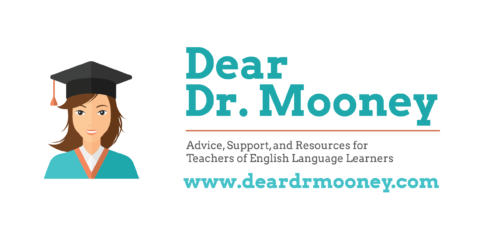As an assistant professor of bilingual education and TESOL (Teaching English to Speakers of Other Languages), I am often asked questions about working with English Learners (ELs).
Pre-service educators ask questions like…
- “Dr. Mooney, will I need to learn my students’ native languages in order to teach them well?”
- “Won’t my school’s ESL teacher be responsible for the ELs? I won’t need to do anything special, will I?”
Currently practicing teachers want to know…
- “Dr. Mooney, why do my ELs use English just fine on the playground, but then struggle so much in the classroom?”
- “I have three new students in my classroom that don’t speak ANY English at all. What should I do?”
Why do educators have so many questions about teaching ELs?
It is because many do not feel effectively equipped to answer the questions for themselves. Often, teacher preparation programs do not require courses about teaching ELs.
Once in the classroom, educators do not have the margin for professional development beyond what is required by their school districts. As a result, many are often frustrated by their lack of knowledge about ELs’ academic and linguistic needs.
So what do they do about it?
- Some will leave the profession.
- Others will continue teaching regardless of their ELs’ needs, and many of their students will make little academic or linguistic progress.
- Still others will seek out more knowledge in order to improve their practice.
Those who strive to improve their practice often feel isolated or alone because help isn’t always accessible. Schools don’t always employ ESL specialists, and finding the right person to contact at the district level can be complicated. Even when ESL specialists are present, they are teachers will full schedules, often working without a planning period. So, time for consultations between classroom teachers and ESL specialists may be quite limited. Sometimes even ESL specialists feel isolated. They may have received little training, but then are expected to know the answers to every teacher or administrator’s question about English learners.
What is the answer to these challenges?
Introducing…. Dear Dr. Mooney!
This is an online community where you can find just-in-time advice, get the support you deserve, and discover resources to help you become a more effective educator of ELs.
You can read my articles that answer questions from teachers just like you. Some articles will provide information you may not even realize you needed. Sometimes, I will review resources that I know will be helpful, but you may not have had time to find.
In other articles, you can read or watch interviews to learn from experts in the field. Later, you’ll see how-to videos where I’ll sit down beside you (virtually!) and show how I would use a resource or strategy to meet ELs’ academic or linguistic needs.
Sign up to get the latest articles sent directly to your email:
In Discussion Forums, you will be able to give and get support from other teachers who understand how you feel. By reading and responding to questions, or asking your own, you will learn ways to address your own EL teaching challenges. Perhaps more importantly, you will hopefully realize you are not alone.
Create a free member account
to join in the discussion and get started today!
I know that teaching English learners can be challenging or even frustrating, but it can also be very rewarding if you have the knowledge and support you need.
Dear Dr. Mooney was designed with you and your students in mind!







